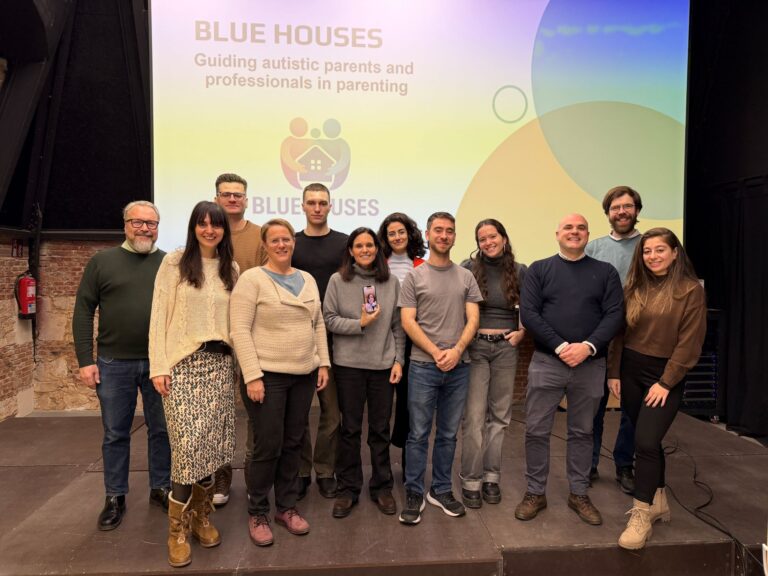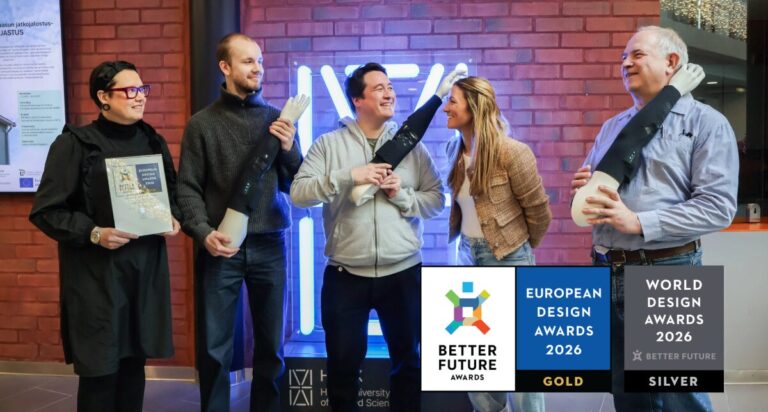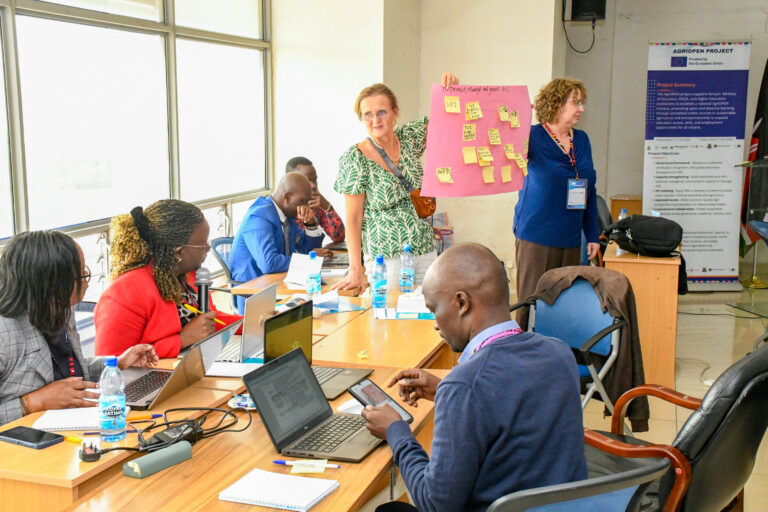HAMK’s learning experience survey provides in-depth information on the links between learning and well-being

Student well-being is an important research topic, as an increasing number of higher education students in Finland are at risk of burnout. At HAMK, the learning experience survey, which has been in use for four years, shows a clear connection between academic success and well-being. Recently, the data produced by the survey has been combined with student registry data, which can help prevent dropouts and promote smooth studies.
About the Survey
- The Learning Experience Survey (LearnWell) provides research-based information on HAMK students’ learning, study experiences, work-life readiness, and well-being related to studying.
- Examining the connections between these areas provides valuable information to support the development of learning and education.
- The aim is to strongly involve students’ voices in the development of education and increase their awareness of their own studies.
The performance pressures and well-being of young people and students have been a common concern in recent years. However, the connections between well-being and learning have received relatively little attention in higher education, note researchers Liisa Postareff, Viivi Virtanen, and Sara Rönkkönen, who work on this topic at Häme University of Applied Sciences.
Since 2021, they and four other members of the research area have led the LearnWell survey, which broadly maps students’ learning experiences. Recently, the data produced by the survey has been combined with student registry data.
“In summary, one could say that academic success and well-being are strongly connected. Higher credit points and averages seem to be associated with better well-being. Sometimes it is claimed that successful students are easily burned out, but this is not generally the case according to our research,” says Sara Rönkkönen.
By combining the results with student registry data, it is also possible to draw conclusions about factors that may be associated with academic difficulties. This way, challenges can be addressed during studies, reducing dropouts and promoting progress according to the planned schedule.
This is significant because, according to the results so far, about one-fifth of the students who responded to the survey are at increased risk of burnout. This is a widespread situation in Finnish higher education institutions, partly due to the difficulties caused by the COVID-19 years. However, it does not fully explain the situation.
“The first thing that stood out from the results was that self-criticism is often quite high, while self-compassion is low. I think there is work to be done here. It can also be noted that the level of criticism varies between study environments and programmes,” reflects Viivi Virtanen.
According to the head of the research group, Liisa Postareff, the issue could partly be addressed by changing assessment methods. She believes that at the organizational level, it is possible to significantly influence whether the general atmosphere is compassionate or critical.
“In traditional assessment, mistakes and failures are pointed out, and there is no oral feedback or discussion. The student may be left alone to ponder the matter and feel inadequate.”
The survey is broadly and genuinely participatory
Students are subjected to various surveys throughout their studies, such as feedback collected at the end of each module. However, the LearnWell Learning Experience Survey is more comprehensive and the only one that provides an overall picture of the entire study experience. Starting this spring, it will also give students a personal summary of the survey results.
Students respond to the survey twice: in their first and second years of study. There are a total of 80 statements that measure various dimensions related to studying, such as experiences of the learning environment or the development of skills. Students respond to these on a five-point scale from strongly disagree to strongly agree. The statements include, for example: I use the time allocated for studying as efficiently as possible. / I have learned to provide justifications for things. / I can list suitable expert tasks for myself. / I constantly wonder if my studies are meaningful. / I often have to repeat things over and over to learn them.
The survey is based on the HowULearn tool developed at the University of Helsinki and is used in some higher education institutions. However, at HAMK, the survey has been further developed and its utilization has been taken exceptionally far.
At HAMK, the utilization of the survey has been taken exceptionally far.
Firstly, teachers and study counsellors have also been involved in various ways. Secondly, the personal summary that the student receives helps them better understand their own learning and relate it to general results. It also includes tips for improving their own studies and well-being. Additionally, the most important findings are discussed with the study counsellor in the student group without identifying individual students.
“At HAMK, we have found it very important to discuss the findings together with students, study counsellors, and teachers, thereby increasing awareness, for example, that other students also have uncertainties related to academic success. We want to promote a so-called conversational feedback culture,” says Liisa Postareff, head of the research area.
Study skills can be developed
Researchers emphasize that study and well-being skills, such as self-compassion, can be developed and supported in the study environment. At HAMK, almost all teachers have completed the five-credit LearnWell training, which helps teachers respond to the needs identified in the survey: for example, how to develop the atmosphere of education, provide feedback that supports students and learning, and promote deep learning instead of fragmented and superficial learning.
The Learning Experience Survey is intended to be a permanent operating model at HAMK, which develops as it is implemented.
At HAMK, almost all teachers have completed the five-credit LearnWell training.
“Our team has discussed the topic extensively with teachers, education managers, study counsellors, and the university management. We aim for the LearnWell thinking to permeate the entire institution.”



